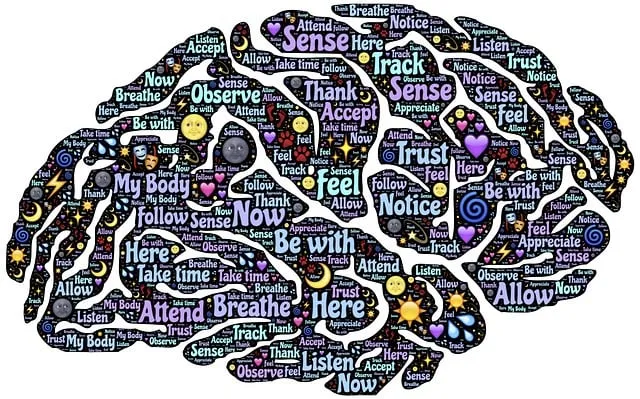Boulder Kaiser Permanente prioritizes mental wellness through a comprehensive evaluation system that goes beyond traditional metrics, integrating qualitative insights from patients and healthcare providers. This holistic approach, focusing on both patient well-being and provider safety, ensures their mental health services align with community needs, best practices, and evolving policies. By utilizing diverse evaluation methods and continuous feedback loops, they optimize program effectiveness, enhance data-driven decision making, and ultimately strengthen their impact in supporting individuals seeking stress management and mental wellness.
Mental wellness program evaluation is crucial for understanding and enhancing the impact of interventions. This article explores various methods used to assess the effectiveness of mental health services, drawing from the successful approach implemented by Boulder Kaiser Permanente. We delve into their unique strategies for measuring success, focusing on key performance indicators relevant to their mental health services. Additionally, we discuss common evaluation techniques and emphasize the importance of continuous feedback loops to optimize programs, as demonstrated by Boulder Kaiser Permanente’s impressive track record with a high number of successful outcomes.
- Understanding Mental Wellness Program Evaluation
- Boulder Kaiser Permanente's Approach to Measuring Impact
- Common Methods for Assessing Mental Health Services
- Enhancing Programs Through Continuous Evaluation
Understanding Mental Wellness Program Evaluation

Mental wellness program evaluation is a crucial process that measures the effectiveness and impact of interventions aimed at enhancing mental health and well-being. It involves systematically assessing various aspects of a program, including its design, implementation, and outcomes, to ensure it aligns with the needs of the target population. This method is essential for organizations like Boulder Kaiser Permanente, which provides mental health services, to track progress and make informed decisions regarding their programs.
By evaluating these initiatives, healthcare providers can identify successful strategies for Mood Management and Stress Reduction Methods. Moreover, a comprehensive analysis contributes to evidence-based practices, informs Mental Health Policy Analysis and Advocacy efforts, and ultimately improves the overall quality of care. Effective evaluation ensures that resources are allocated efficiently and that mental health services meet the unique needs of communities they serve.
Boulder Kaiser Permanente's Approach to Measuring Impact

Boulder Kaiser Permanente has pioneered an innovative approach to evaluating and measuring the impact of their mental health services. They employ a multi-faceted strategy that goes beyond traditional metrics, recognizing the complex nature of mental wellness. By integrating quantitative data with qualitative insights, they gain a comprehensive understanding of service effectiveness. This method includes surveys and feedback from both patients and healthcare providers, capturing experiences related to burnout prevention strategies for healthcare providers.
The organization also emphasizes storytelling as a powerful tool for assessment. Patient narratives and case studies provide unique perspectives on the journey towards mental wellness. Through these diverse evaluation methods, Boulder Kaiser Permanente aims to enhance their Mental Wellness Coaching Programs Development, ensuring services are tailored to individual needs while fostering conflict resolution techniques within the healthcare setting.
Common Methods for Assessing Mental Health Services

Assessing mental health services is a multifaceted process that involves various evaluation methods to gauge their effectiveness and impact. One prominent approach is the use of standardized questionnaires and surveys, which can be administered to both clients and healthcare providers. These tools often include validated metrics to measure symptoms, satisfaction levels, and therapeutic outcomes related to specific mental health conditions. For instance, the Boulder Kaiser Permanente mental health services number may utilize such methods to track improvements in patient well-being over time.
Another common strategy is conducting structured interviews or focus groups where participants share their experiences and perceptions of the services received. This qualitative data provides insights into clients’ perspectives on therapy, support systems, and overall mental wellness improvement. Additionally, implementing Stress Reduction Methods and incorporating Stress Management techniques within these evaluations can offer a holistic view of patients’ progress, particularly in managing challenging emotions and promoting resilience. Moreover, Risk Management Planning for Mental Health Professionals plays a crucial role in ensuring the safety and well-being of both clients and practitioners during the evaluation process.
Enhancing Programs Through Continuous Evaluation

At Boulder Kaiser Permanente, continuous evaluation is a cornerstone of their mental health services. By regularly assessing program effectiveness, they can identify areas for improvement and enhance patient outcomes. This data-driven approach ensures that the mental health services provided are aligned with current best practices and address the evolving needs of the community.
Through rigorous Mental Health Policy Analysis and Advocacy, Kaiser Permanente Boulder integrates feedback from patients, clinicians, and community stakeholders to optimize their programs. By prioritizing Mental Health Awareness and Stress Management strategies, they foster a supportive environment that promotes recovery and resilience. This continuous cycle of evaluation and improvement ultimately strengthens the impact of their mental health services, benefiting individuals seeking support for their well-being.
Mental wellness program evaluation is a multifaceted process, as evidenced by Boulder Kaiser Permanente’s successful implementation of measurable impact strategies. By adopting various assessment methods, including those tailored to specific mental health services, organizations can enhance their programs and improve patient outcomes. Continuous evaluation, inspired by innovative practices like those seen at Boulder Kaiser Permanente, allows for iterative improvements, ensuring that mental wellness initiatives remain effective and aligned with evolving needs. This comprehensive approach encourages a culture of evidence-based practice in the delivery of mental health services, ultimately benefiting the greater number of people.






